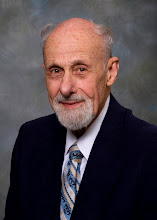TOWARDS A DEMOCRATIC NATION
Almost two and a half centuries ago a group of upstarts on the North American continent had the audacity to rebel against the English King George and establish a new nation. These rebels had strange ideas, such as people making their own laws instead of living by the whims of a king or other ruler. We call it democracy.
Since then, we, the people of that new country, have staged an unremitting struggle to become the kind of nation we like to think we are. The quest for democracy has been a series of major battles. In the nineteenth century CE an important movement towards democracy was abolition of slavery. Despite a devastating civil war and bitterness that is not entirely erased even now, the outcome of that struggle was preordained, if we Americans are to call ourselves a democracy.
The Emancipation Proclamation of 1863 freed the slaves, and in 1865 the 13th amendment firmly embedded the prohibition against slavery in the Constitution. It was just part of the the natural flow of events. Slavery had to be abolished. You can’t have slavery and democracy. They just don’t go together.
Not that it was easy. Powerful economic forces fought desperately to maintain the status quo. But once the issue was brought into the light of public scrutiny, sooner or later, the end of slavery was inevitable.
At the same time, another major battle was raging. Led by Susan B. Anthony, Elizabeth Cady Stanton, and others, women were fighting for civil liberties, mainly the right to vote. Here, too, was a long and often painful battle. And here, too, the outcome was assured because you can’t have democracy while half the population are second-class citizens. So in 1920 the 19th amendment, which guaranteed women the right to vote, was the inevitable outcome of that struggle.
The second half of the twentieth century saw the monumental effort to free the South from racial segregation. Again, the outcome was predetermined. You can’t have democracy with part of the population in second class status. The same forces that fought to continue slavery also fought against the liberation of women and against integration in the South. But by the end of the seventies, black children were attending school with whites and black people were entitled to trial by jury instead of lynching. They could even walk into a restaurant and be served.
I can’t pretend that these battles are completely won. We’re still plagued with gender and racial discrimination in the workplace and other areas. But compared with the situation before these battles for equality were fought, we have made tremendous progress.
So here we are in early twenty-first century. Again we face a monumental struggle for civil liberties, this one for the rights of the sexually different. We have made some progress. Gays will soon be openly serving in the military (That’s new!), and civil unions may be a step forward. Or––they may be just a method of delaying the inevitable. The same powerful forces are at work again, and another battle is raging.
Let me suggest two questions that need to be asked about denial of gay rights, such as California’s Proposition 8: 1) Who does it help? 2)Who does it hurt? I find the answers to both these questions obvious. First, Who does it hurt? Clearly, Proposition 8 hurts about 5% of the population, who were born homosexual. They are denied a civil liberty (the right to marry and establish a family) that you and I claim for ourselves.
And who does it help? Nobody, but this requires an explanation. We are all born into a culture, and that culture largely determines our customs and traditions and the behavioral norms of our everyday lives. When we encounter people with other customs, traditions, and norms there is a human tendency to feel affronted, violated. “These people are out of conformity, ignoring what ‘everybody’ considers proper.” We instinctively want to suppress this wanton behavior.
But the essence of democratic living is diversity, room for all of us. Once we understand that other life styles do not threaten our society, but enrich it, we can celebrate the magnificent variety of the great human race. So when I propose that nobody is helped by the ban on homosexual marriage, I mean that nobody is wealthier, healthier, wiser, more loved, or in any material or emotional way better off. As a matter of fact, opening up gay marriage would benefit you and me in the same way that we were all ennobled by freeing the slaves, elevating the status of women, and integrating the South.
So is it too much to ask for us Homo saps to evolve a bit since the days when we debated the merits and demerits of slavery, and not have to go through such destructive, wrenching battles, when the outcome is preordained––if we want to live in a democracy? We can’t have it both ways. If we can discriminate against anybody, we can discriminate against––anybody. There are only two kinds of societies: free and not free. Take your choice. I vote for democracy.
